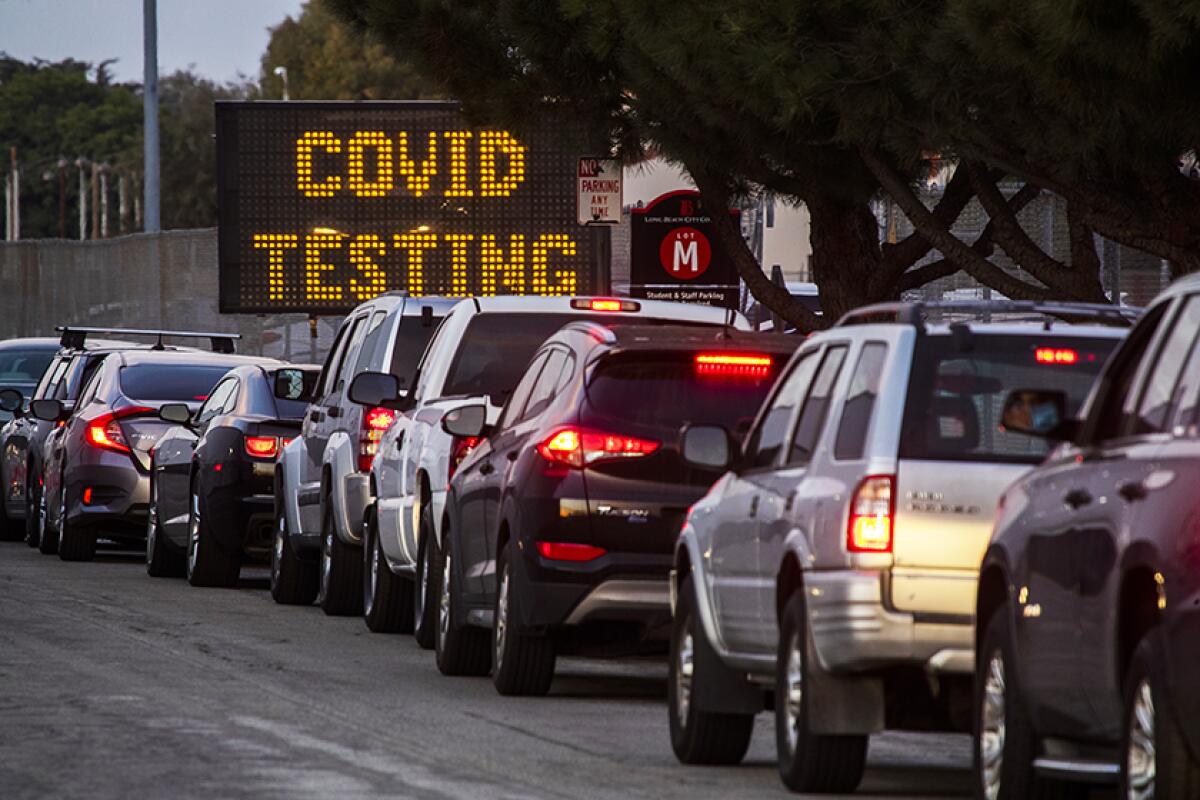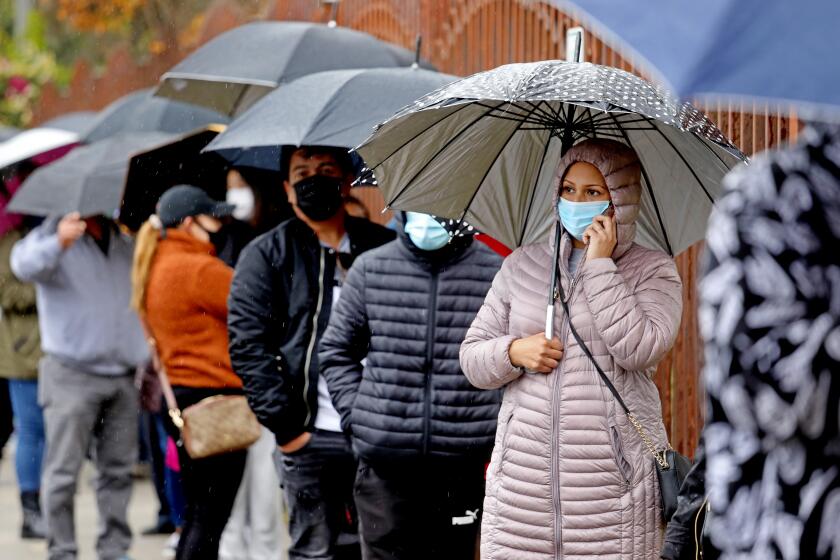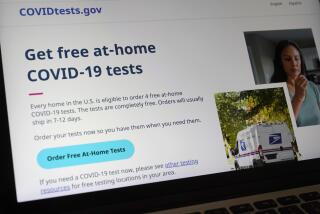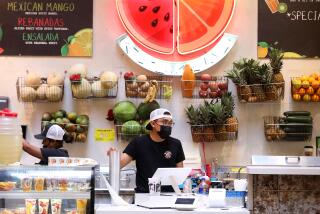Free at-home COVID tests from L.A. County on pause for now

- Share via
With the Omicron coronavirus variant spreading rapidly and COVID-19 infections surging, you might find yourself waiting in a long line to get tested at a clinic or pharmacy, or scouring store shelves and websites for rapid testing kits — which are as hard to find as a newly introduced game console.
There has been one more option for L.A. County residents (although it won’t help if you need test results right away): The Department of Public Health offered a free test-by-mail service that could give you results within about four days. The supply of those tests was limited, however, to 4,000 a day.
In fact, supply issues appear to have doomed the program. County officials said Thursday that “due to the current backlog in the logistics of processing kits,” they stopped making the kits available on Wednesday. Instead, the county is opening more testing sites and extending their hours, while also developing a new version of the home testing program that will require residents to pick up and drop off their sample kits.
Health officials halted L.A. County’s home COVID testing program this week because of a “backlog in the logistics” of processing test kits, which had been limited to 4,000 a day.
In the meantime, here are some other options.
The county’s home testing program had relied on a kit from Picture by Temple City-based Fulgent Genetics, one of dozens of laboratory-based molecular tests that the Food and Drug Administration has authorized for use during the pandemic. If you don’t want to wait for the county to offer free home tests again, you can order a kit from Picture or a number of other online providers for a fee; prices start around $40. You’ll have to pay that upfront, then seek reimbursement from your health insurer.
If you need results right away, you have a number of options. At least three FDA-authorized at-home molecular tests have hit the market, but they are expensive, costing $90 or more for the first test. These are from Lucira, Cue Health and Detect.
The agency has also approved at least 14 at-home antigen tests for use without a prescription, at least eight of which are being sold at local pharmacies, medical supply outlets and big online retailers such as Amazon. These include tests sold under the brands iHealth, QuickVue, BinaxNow, CareStart, BD Veritor, Inteliswab, On/Go and Celltrion.
Prices for a pack of two tests range from about $14 to $30. But finding them can be a challenge, especially in a local store, because of the high demand.
Rapid COVID-19 tests are also available from some local urgent care clinics. But those are considerably more expensive, and insurers typically will not reimburse you for this kind of test.
Although antigen tests deliver results faster, molecular tests are considered more capable of detecting the virus in the early stages of infection. Researchers say both types of test do a good job of detecting COVID-19 in someone who is showing symptoms of the disease.
When should you test?
Whether you’re fully vaccinated or not, the Los Angeles County Department of Public Health advises you to get tested for COVID under the following conditions:
- If you have COVID-19 symptoms. See the CDC website for a list.
- If you have been in close contact with someone who tested positive for COVID-19 within the previous 10 days.
- Before and after gathering indoors with people from other households, especially if there will be people in attendance who are at risk of getting severely ill from COVID-19 or are unvaccinated.
- One to three days before domestic travel and three to five days after returning from travel (foreign or domestic).
- Before boarding a plane in another country to fly to the United States.
If you receive a positive test result, isolate for at least five days and take a follow-up test on the fifth day, public health officials advise. How long you should stay in isolation depends on whether you have symptoms and the results of follow-up tests.
The county’s public health website recommends using an antigen test for the follow-up because molecular tests can come back positive even after you are no longer infectious.
More to Read
Sign up for Essential California
The most important California stories and recommendations in your inbox every morning.
You may occasionally receive promotional content from the Los Angeles Times.













